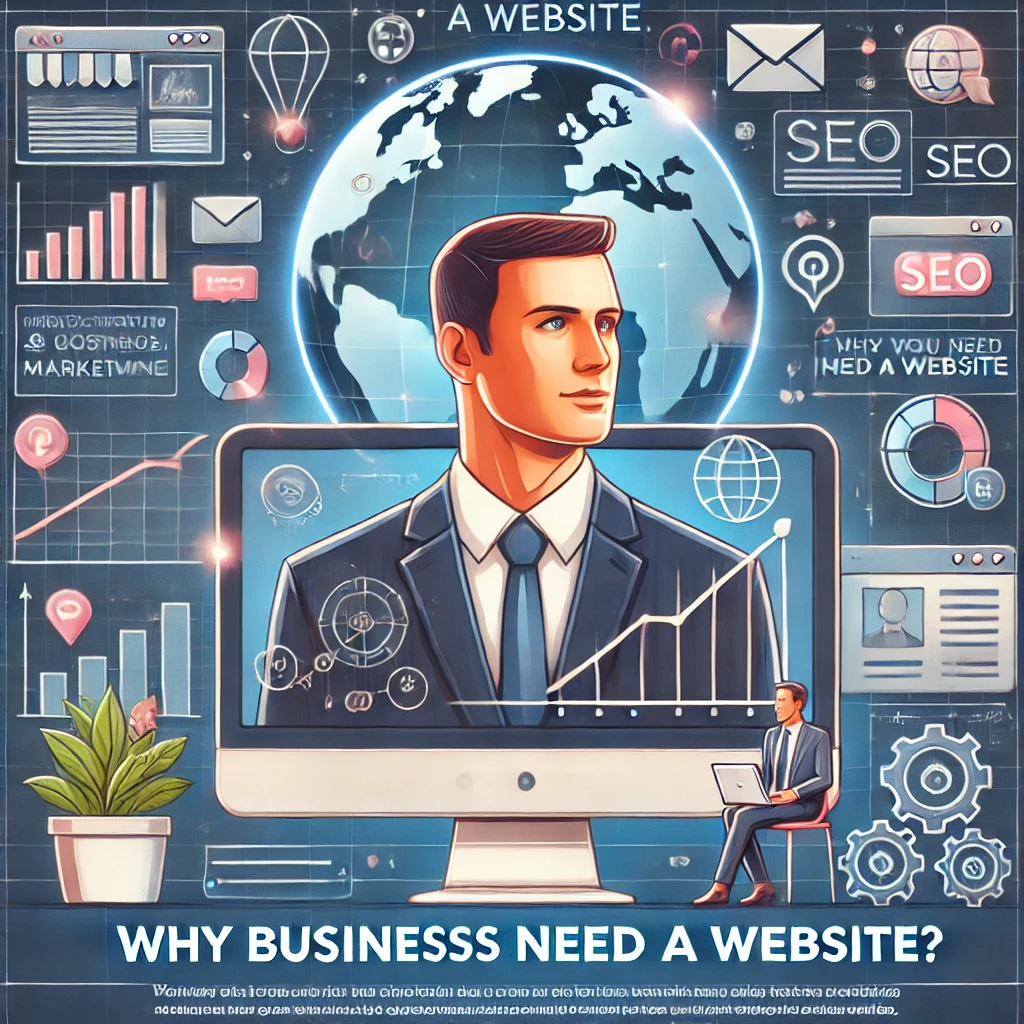In today’s digital age, having a website isn’t just an option for businesses—it’s a necessity. Whether you’re a small startup in Kathmandu or a growing enterprise, a website acts as your online storefront, credibility booster, and growth engine. Here’s why every business needs a website in 2025.

Your Customers Are Online
Over 5 billion people use the internet worldwide, and in Nepal alone, internet penetration has soared past 90% in recent years. Your customers—whether local or global—are searching for products, services, and solutions online. Without a website, you’re invisible to this massive audience. A website puts your business where your customers already are: Google, social media, and beyond.
Builds Trust and Credibility
A professional website signals legitimacy. In an era where scams and fly-by-night companies abound, customers want proof you’re the real deal. A well-designed site with clear contact info, testimonials, and details about your services builds trust. For example, a software company showcasing its portfolio online is far more likely to win clients than one relying solely on word of mouth.
24/7 Accessibility
Unlike a physical store with set hours, a website works around the clock. Customers can learn about your business, browse your offerings, or even make inquiries at 3 a.m. This constant availability is a game-changer, especially for businesses targeting busy professionals or international markets across time zones.
Cost-Effective Marketing
Traditional marketing—flyers, billboards, or newspaper ads—can be expensive and hard to measure. A website, on the other hand, is a one-time investment that keeps delivering. With basic SEO (Search Engine Optimization), your site can rank on Google, attracting free organic traffic. Add a blog or portfolio, and you’ve got a powerful tool to showcase expertise without breaking the bank.
Compete with Bigger Players
A website levels the playing field. Even if you’re a small business in Nepal, a sleek, functional site can make you look as professional as a multinational competitor. Features like online booking, live chat, or e-commerce can help you offer the same convenience as larger firms, winning over customers who value efficiency.
Showcase Your Brand
Your website is your digital identity. It’s where you control the narrative—your story, values, and unique selling points. For instance, a Nepali software company could highlight its local expertise or innovative solutions tailored to the region’s needs. Unlike social media, where algorithms dictate visibility, a website is fully yours to customize and brand.
Data and Insights
A website gives you valuable data about your audience. Tools like Google Analytics reveal who’s visiting, what they’re interested in, and how they found you. This insight helps you refine your offerings—say, focusing on mobile app development if that’s what your visitors search for most.
Reach a Global Audience
Even if your business starts in Nepal, a website opens doors to the world. With e-commerce or service pages, you can attract clients from India, the US, or Europe. For example, a software firm offering affordable, high-quality solutions could tap into the growing demand for outsourcing—something a physical office alone can’t achieve.
Adapt to Changing Times
The COVID-19 pandemic proved that businesses with an online presence thrived while others struggled. A website future-proofs your business, ensuring you can pivot—whether it’s adding online sales, virtual consultations, or digital downloads—when the unexpected hits.
Conclusion
In 2025, a website isn’t a luxury—it’s the backbone of business success. It connects you to customers, builds trust, and drives growth, all while keeping costs low and opportunities high. If you don’t have one yet, now’s the time to act. Your competitors already have a head start—don’t let them leave you behind.
Ready to get started? A simple, professional website could be the key to unlocking your business’s potential.
